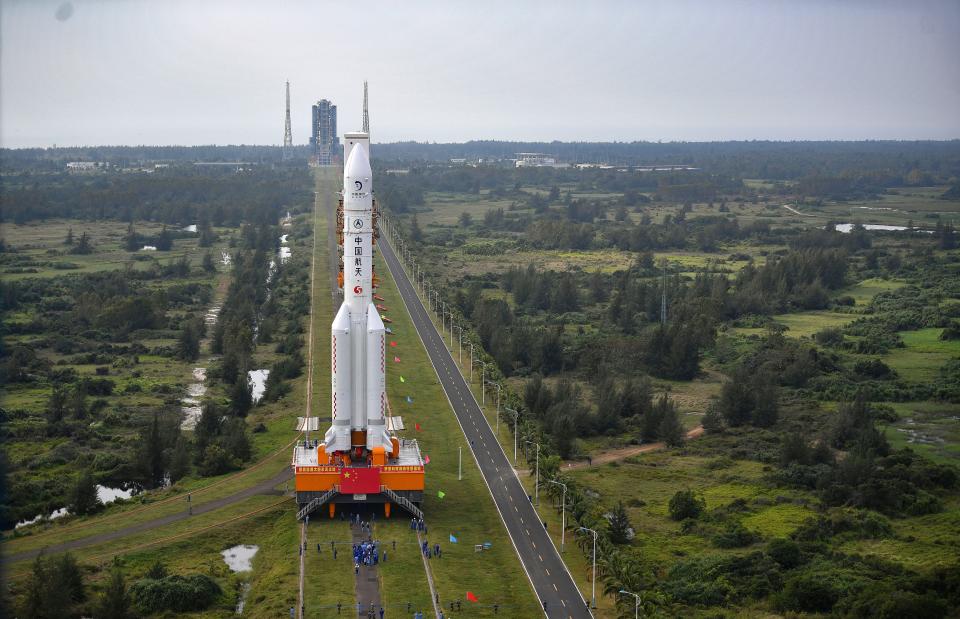Out-of-control China rocket booster crashes into Pacific Ocean after hurtling toward Earth
Debris from an out-of-control Chinese rocket booster crashed into the Pacific Ocean early Friday morning, according to the U.S. Space Command.
China's Long March 5B (CZ5B) rocket re-entered the atmosphere over the Pacific Ocean at 4:01 a.m. MT, the organization said. Accompanying the rocket was a "second atmospheric reentry" at 4:06 a.m. MT.
The booster is estimated to weigh 22.5 metric tons, about the size of a 10-story building, according to the Aerospace Corporation, a federally-funded, nonprofit research and development center.
China launched the rocket on Halloween at its Wenchang Space Launch Site, Aerospace said.
Uncertainty: After days of uncertainty, Chinese rocket reenters atmosphere over Indian Ocean
Chinese rocket debris: Uncontrolled Chinese rocket debris lights up night sky, falls back to Earth near Philippines
#USSPACECOM can confirm a second atmospheric reentry correlated with the #PRC’s Long March 5B #CZ5B as it exited the #USSPACECOM Area of Responsibility over the Northeast Pacific Ocean region at 4:06am MDT/10:06 UTC on Nov. 4. https://t.co/keJdc1tmxi
— U.S. Space Command (@US_SpaceCom) November 4, 2022
Uncontrolled debris: Debris from Chinese space rocket could crash back to Earth as soon as Saturday
Heads-up: A Chinese rocket that might be out of control is hurtling back to Earth. What you should know.
Do these reentries put people at risk?
This isn't the first time debris from China's rockets have landed on Earth. It also happened in 2020, 2021, and in July 2022. During two of the incidents, debris landed near populated areas, Aerospace said.

"Over 88 percent of the world’s population lives under the reentry’s potential debris footprint," the organization reported. "Factors such as the rocket core's uncontrolled manner of descent and its size, which is too large to entirely burn up in the Earth's atmosphere, collectively present risks high enough that require additional precautionary preparation around the world."
Prior to the landing, Aerospace's scientists at the Center for Orbital and Reentry Debris Studies worked to track the CZ-5B rocket.
For days, researchers have anticipated with great uncertainty where the latest pieces of large debris would land.
Space debris can pose a threat to human safety and property damage, the organization said.
Marlon Sorge, a technical fellow from Aerospace, said during a May 2021 Q&A that reentries are likely to land in the ocean since Earth is about 75% covered by oceans.
"The probability that a piece of space debris will land on a city or a densely populated area is usually relatively small," he said at the time.
Saleen Martin is a reporter on USA TODAY's NOW team. She is from Norfolk, Virginia – the 757 – and loves all things horror, witches, Christmas, and food. Follow her on Twitter at @Saleen_Martin or email her at sdmartin@usatoday.com.
This article originally appeared on USA TODAY: Out-of-control rocket booster from China lands in the Pacific Ocean

